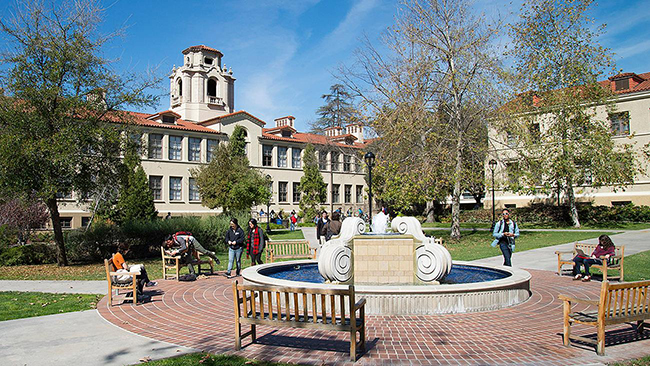Former Senator talks health care, need for universal access
With an estimated 90 million Americans uninsured and underinsured, there is no issue of more importance to the future of our democracy than health care, according to former US Senator from South Dakota Tom Daschle, who spoke at Claremont McKenna College’s Athenaeum Monday night.
Amid students and the politically inclined, the former Senate majority leader and tireless health care advocate stressed the importance of participation in the November election as part of this year’s Marian Miner Cook Athenaeum speaker series. Political views aside, he warns the level of participation could make or break our democracy.
“In less than 45 days, we will ultimately determine what happens to the Affordable Care Act. For Mr. Romney it’s repeal and replace, for Mr. Obama it’s his signature achievement in his first 4 years,” Mr. Daschle said. “This is a very close race and it could go either way. Votes matter.”
Mr. Daschle knows from experience. He began his political career as a member of the US House of Representatives in 1978, beating his opponent by 14 votes.
“Which in South Dakota is 60 percent,” he joked.
After serving 4 terms in the House, he was elected to the US Senate in 1986, where he was named minority leader in 1994. To date, he is the only senator to have served as both the Senate’s minority and majority leader.
His run with the Senate came to an end in defeat by Republican John Thune in 2004. He now serves as a policy advisor at DLA Piper Global Law Firm, where he acts as a strong advocate of many public policy issues including universal health care. Mr. Daschle published a book on the subject, titled Getting it Done: How Obama and Congress Finally Broke the Stalemate to Make Way for Healthcare Reform in 2010.
Despite varied stances on President Barack Obama’s plan for universal, affordable health care, Mr. Daschle claims there are 3 main challenges surrounding the current health care system that are universally accepted across the political spectrum. To start, the United States’ health care system has serious problems with access, cost and quality. He refers to health care as a pyramid. At the base of the pyramid is basic health care. At the top are the most sophisticated applications like heart transplants and MRIs. Every society starts at the base and works its way up until the money runs out. This is not the practice in the United States.
“In the United States, we start from the top of the pyramid and work our way down until the money runs out and people confuse that with quality,” he said. “The problem is that is where costs are most expensive. You can deal with health care in the broadest and most basic way at the base of the pyramid and yet a lot of people don’t have base-of-the-pyramid care.”
The cause of these problems is another accepted bipartisan issue: It all comes back to transparency.
“We have more access to stats on any sports figure…than we do on any doctor or hospital,” Mr. Daschle said. “You don’t know about the quality of a doctor. You have no way of knowing. You can’t tell what the record of a hospital is because there is no transparency and you can’t fix what you can’t see.”
Fundamental issues across party lines come down to the role government plays in this process. Several students voiced these concerns to Mr. Daschle. Can the government force a child with obesity to choose broccoli over chips? What happens to doctors inundated with work because of the new system? How do they make a living? Those are all complex issues, he agreed, but Mr. Daschle maintained the important thing is that we continue to work toward universal access.
“For the first time, we now have the prospects of universal health care access as a public policy goal. The pieces are there,” he said. “We must fully appreciate that we are going to lose and gain yards but at the end of the day, our goal is to get to the end.”
It is imperative that young Americans, like CMC students, ask these questions and start moving toward a solution, according to Mr. Daschle.
“You [students] are going to feel the effect of all this far greater than I ever will, and I think you have a right and certain responsibility to see this turns out well,” he said. “We are on an unsustainable path and unless we start addressing health care in a very comprehensive way, we will not succeed.”
—Beth Hartnett
news@claremont-courier.com










0 Comments